The last time a prominent Cherokee politician tangled with tribes, he got what he wanted
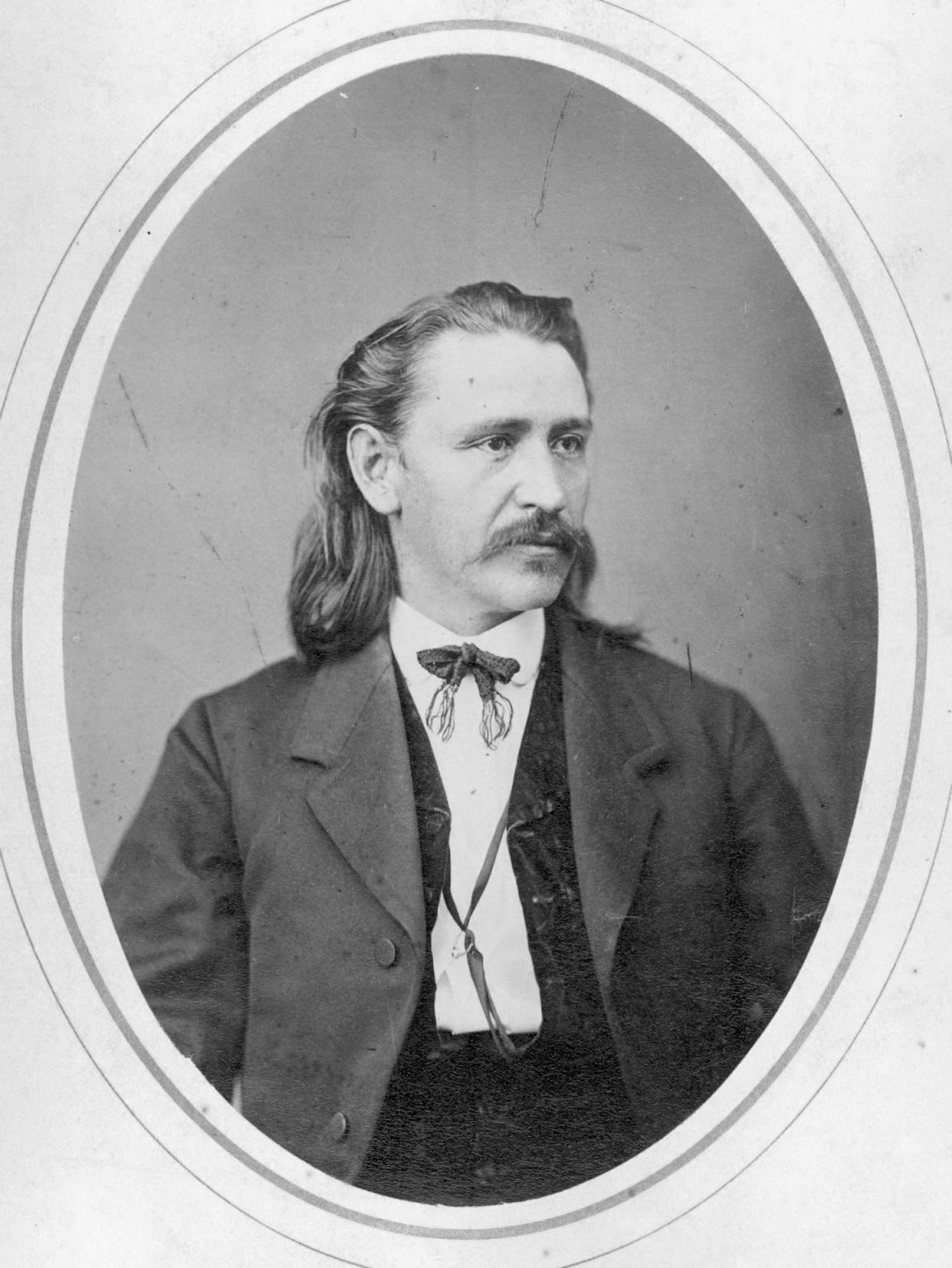
Gov. Kevin Stitt, a citizen of the Cherokee Nation, has clashed with Native American tribes over gaming, the McGirt decision and tribal sovereignty itself. For the Cherokee Nation, the state's largest tribe, it's not the first time to be at public cross purposes with the power and influence of one of its own.
In the late 19th century, the Cherokee detractor was Elias Cornelius Boudinot.
Boudinot's views prevailed over those of the Cherokee Nation and other tribes, and his actions sparked the Boomer Movement and eventual white settlement of the Unassigned Lands, including the 1889 Land Run and founding of Oklahoma City. Boomers agitated for white settlement of the territory before the U.S. government was ready, going so far as to set up illegal camps that were forcibly removed by the military.
Who was Elias Cornelius Boudinot, the Cherokee who helped coin the state name "Oklahoma?"
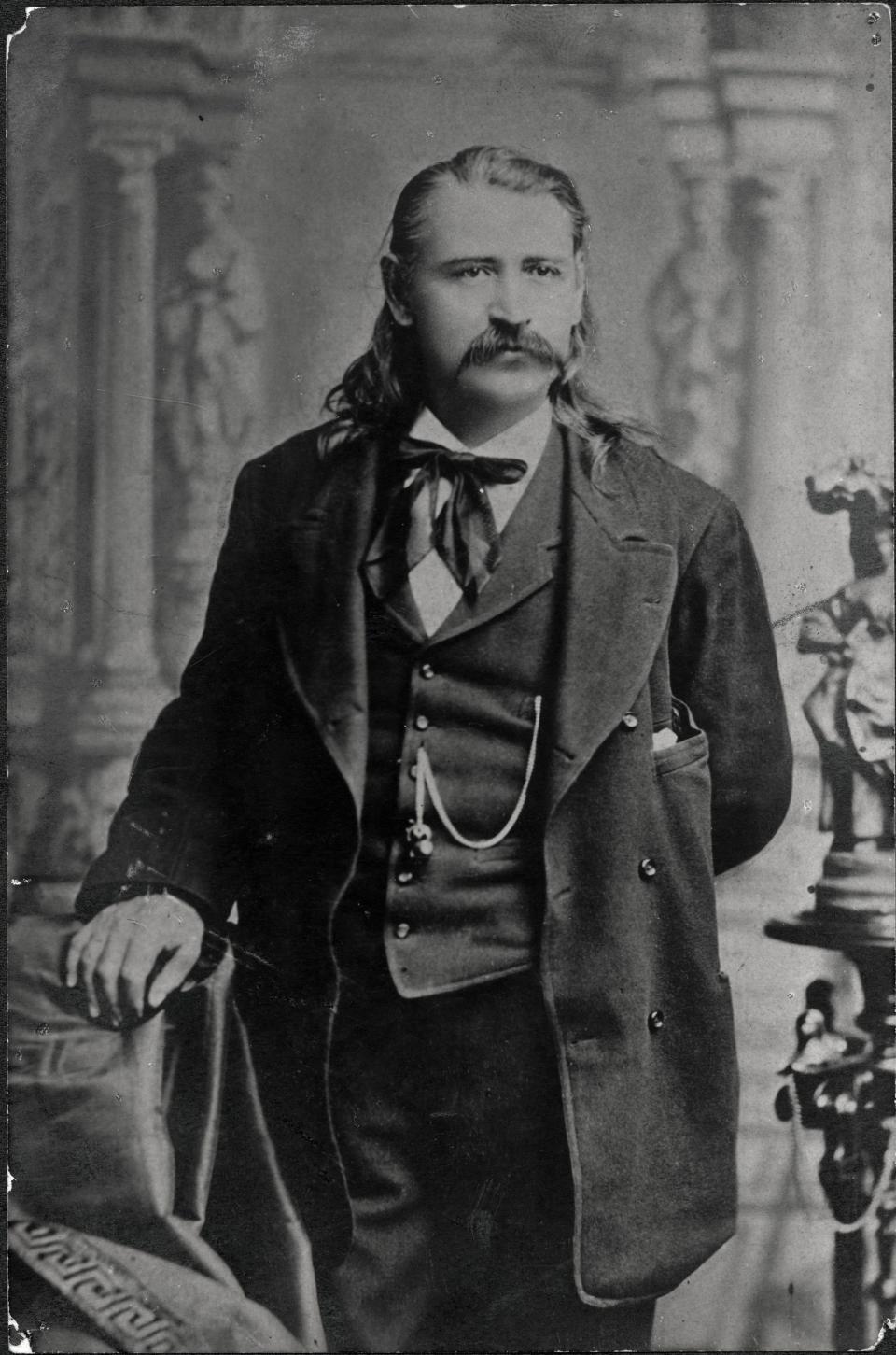
Elias Cornelius Boudinot was born in 1835 in Cherokee country in Georgia amid the political chaos that led to the humanitarian crisis of the Trail of Tears, the forced removal of tribes from the southeast to Indian Territory. His father was Elias Boudinot, a leader of a Cherokee faction, the Treaty Party, that acceded to removal, and who was assassinated for it later, along with his cousin, John Ridge, at Park Hill, near Tahlequah.
Almost from his birth, Elias Cornelius Boudinot lived along a contradictory fissure in Cherokee society — the split between some Cherokees, who accepted removal and allied with the South in the Civil War, and others, who sided with the Union but then fought territorialization.
More: Legislature can renew tribal compacts without Stitt, lawmakers tell Oklahoma Supreme Court
Elias Cornelius Boudinot died in 1890 in Fort Smith, Arkansas, a rancher and ferry owner-operator just across the Arkansas River at Paw Paw, a settlement of mostly intruders — illegal residents — in extreme southeastern Sequoyah County.
In between, he was a lawyer, politician, orator, voluminous writer, editor and business owner — a frontier intellectual gifted with the power of persuasion, especially when it came to promoting Oklahoma statehood. Boudinot is credited with helping write proposed legislation naming the new territory "Oklahoma."
The 1866 Reconstruction Treaties turned Elias Cornelius Boudinot, a Cherokee serving the Southern Delegation, against treaty making
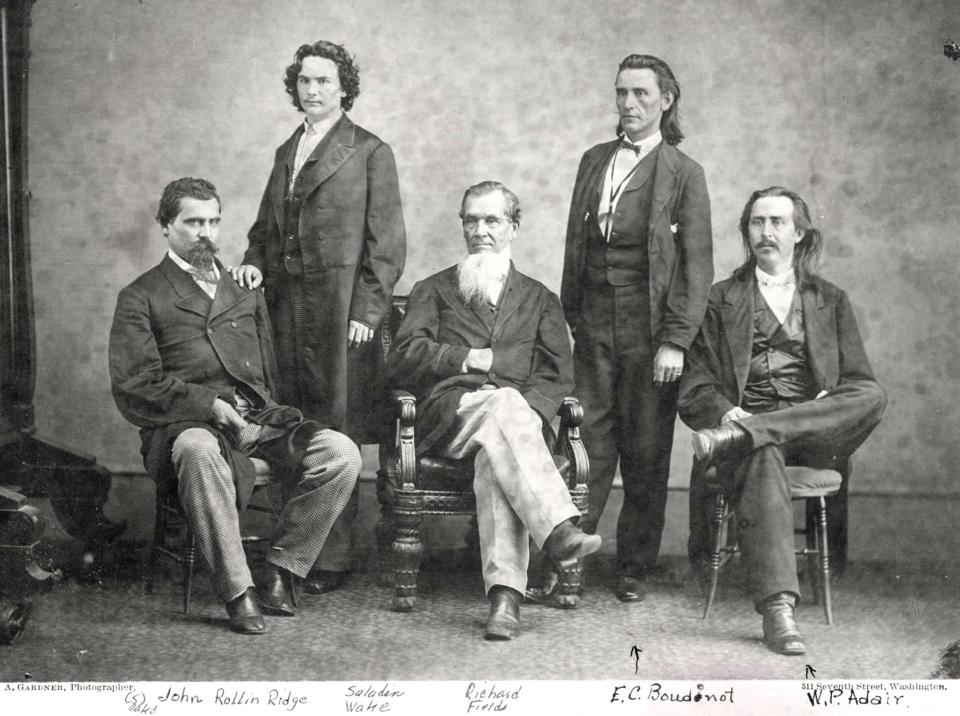
He supported notorious Boomer David L. Payne, actually defending him in federal court in 1881 in a case he lost when Judge Isaac C. Parker declared that Boomers must stay out of the Unassigned Lands and fined Payne $1,000.
Earlier, Boudinot worked at the center of Cherokee affairs during the secession crisis and Civil War era. His uncle, Stand Watie, was a Confederate officer and de facto Cherokee chief, and the Cherokees’ future appeared to be with the South. His political maneuvering and journalism work in Arkansas gave him high standing with the Democratic Party, and he served as a battlefield colonel and delegate to the Confederate Congress in Richmond, Virginia.
More: Cherokee Nation breaks ground on new soundstage as part of 'self-sustaining film ecosystem'
After the war, Boudinot and Watie led the Southern delegation negotiating Reconstruction Treaties with the United States, which began in Fort Smith in 1865 and concluded in Washington, D.C., in 1866. With a hard hand, Union negotiators left the tribes not only defeated and divided, but humiliated.
The experience led Boudinot to forevermore abandon any trust in treaties. He concluded that they were worthless even before Congress admitted as much by discontinuing treaty making with tribes in 1871.
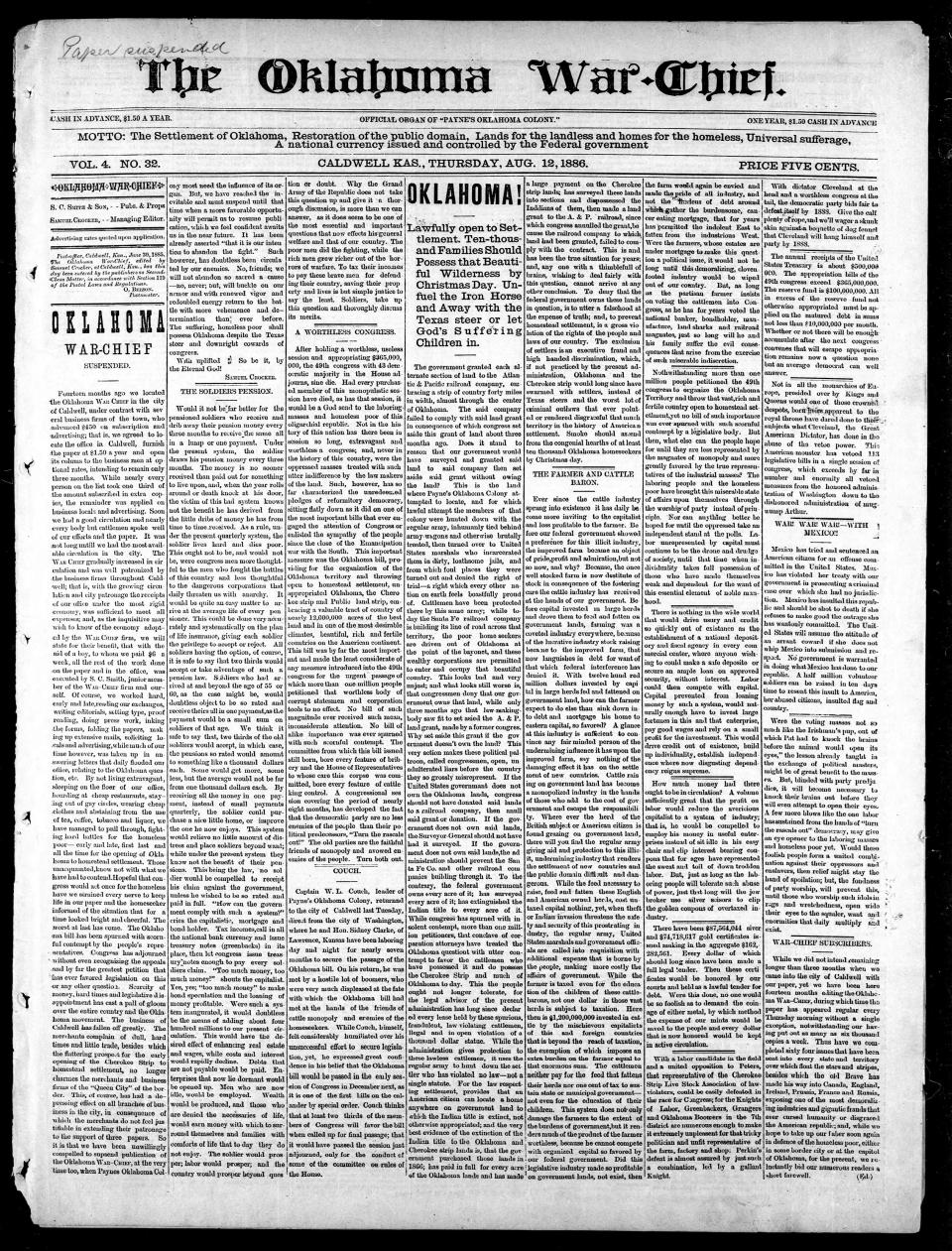
It was a business loss during this time at the hands of the U.S. government that turned him against tribal sovereignty and led him to advocate for breaking up communal land holdings into individual allotments, dismantling tribal governments, white settlement as official policy, and Oklahoma statehood.
Thomas Burnell Colbert explains what turned him into a Boomer in the Encyclopedia of Oklahoma History & Culture:
"In 1869 the tobacco factory that Boudinot and Watie owned in the Cherokee Nation was confiscated by federal authorities for failure to pay excise tax. Boudinot maintained that the 1868 tax law violated treaty agreements made in 1866. However, the U.S. Supreme Court ruled against him, fostering his opinion that Indians should become citizens of the United States in order to be protected by the Constitution."
In 1879, Boudinot and T.C. Sears, an attorney for the Missouri, Kansas and Texas Railway Co. — the "Katy" — announced through the newspapers that they had determined that about 14 million acres in Indian Territory, not assigned to any of the removed tribes, was in the public domain and so should be opened to settlement:
The Unassigned Lands.
What did Elias Cornelius Boudinot, a Cherokee lawyer, have to do with David L. Payne and the Oklahoma Boomer Movement?
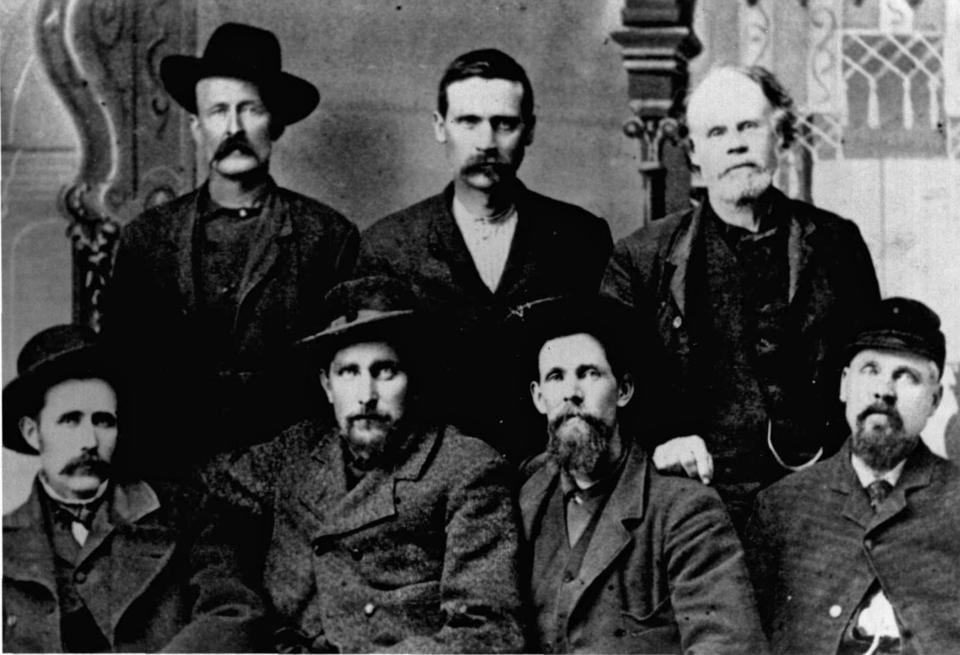
It all crystalized on Feb. 17, 1879, with an article by Boudinot in the Chicago Times. It inspired Boomers to augment their lobbying and promotion of settling "the Oklahoma Country" with the literal movement of people settling illegally in the territory.
Payne led them, keeping them and supporters inspired partly by printing his own paper, called the Oklahoma War-Chief, in Wichita, Kansas, and at his temporary settlements.
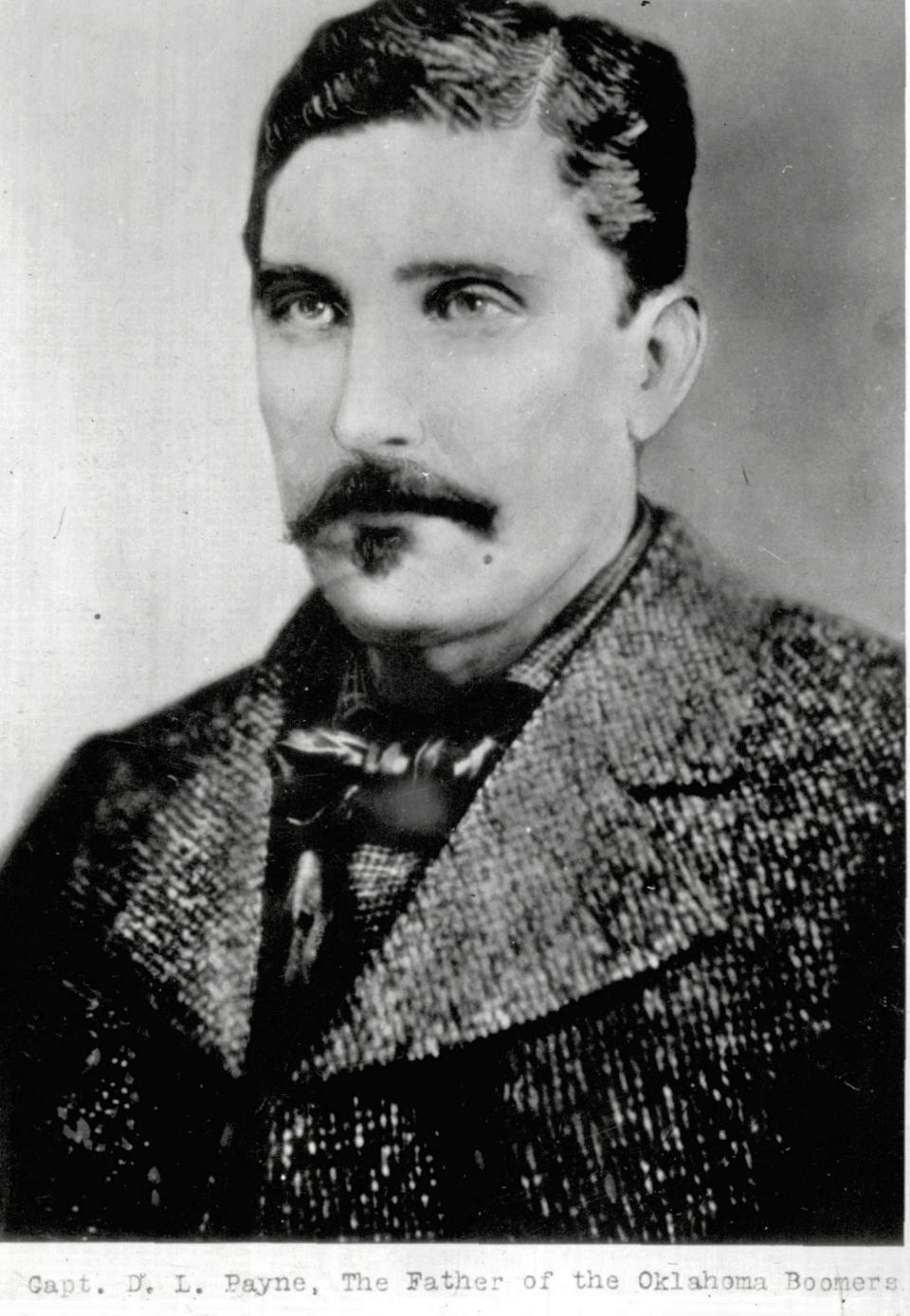
Throughout the 1880s, Boudinot continued to lecture, lobby and write on U.S.-tribal affairs, practice law and gain popularity in pro-Oklahoma statehood circles.
Boudinot died of dysentery on Sept. 27, 1890, one year and five months after the Land Run of 1889. It would be nearly 20 more years before statehood.
The legacy of Elias Cornelius Boudinot, the Cherokee lawyer who went against the Cherokee Nation in support of Oklahoma statehood
Colbert assessed Boudinot's legacy as a prominent Cherokee who opposed so much of what the Cherokee Nation and other tribes desired.
"Although well known and befriended by many, including influential white politicians and businessmen/entrepreneurs, he also engendered many detractors," Colbert wrote. "His activities drew criticism from those who considered his efforts to facilitate American Indian assimilation into white society a betrayal of Indian interests and rights. Nonetheless, he played a conspicuous, if not always remembered or appreciated, role in Cherokee and Oklahoma history."
This article draws on historical research by Richard Mize, as well as the Encyclopedia of Oklahoma History & Culture, and the books "Oklahoma: A History of Five Centuries," by Arrell Morgan Gibson; "Fort Smith: Little Gilbraltar on the Arkansas," by Edwin C. Bearss and Arrell M. Gibson; "The Story of Oklahoma Newspapers," by L. Edward Carter; and "Reconstruction in Indian Territory: A Story of Avarice, Discrimination, and Opportunism," by M. Thomas Bailey.
Sign Up: Weekly newsletter Real Estate with Richard Mize
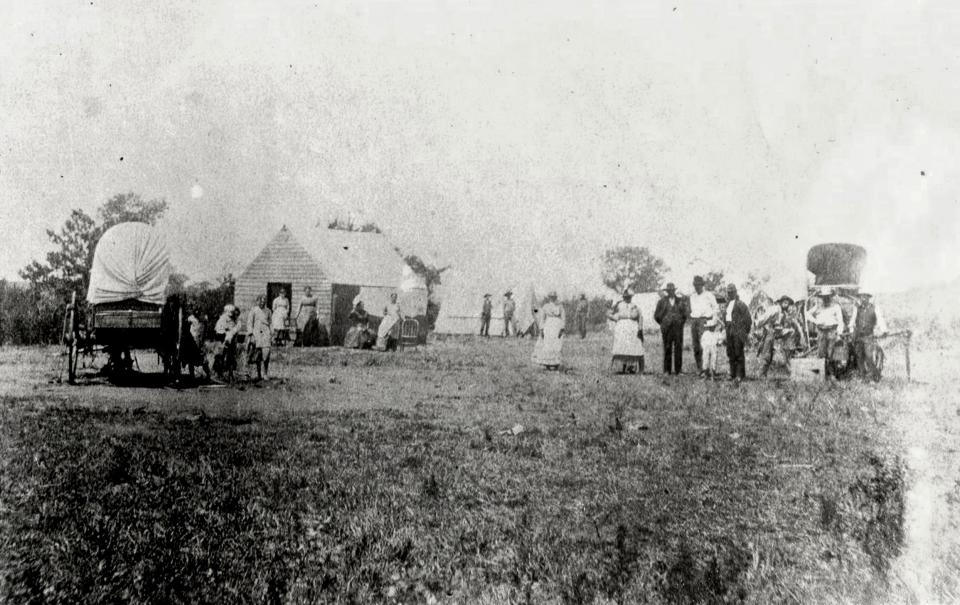
Senior Business Writer Richard Mize has covered housing, construction, commercial real estate and related topics for the newspaper and Oklahoman.com since 1999. Contact him at rmize@oklahoman.com. Sign up for his weekly newsletter, Real Estate with Richard Mize. You can support Richard's work, and that of his colleagues, by purchasing a digital subscription to The Oklahoman. Right now, you can get 12 months of subscriber-only access for $1 a month.
This article originally appeared on Oklahoman: Cherokee Boudinot opposed tribes before Oklahoma Gov. Stitt, a Cherokee

